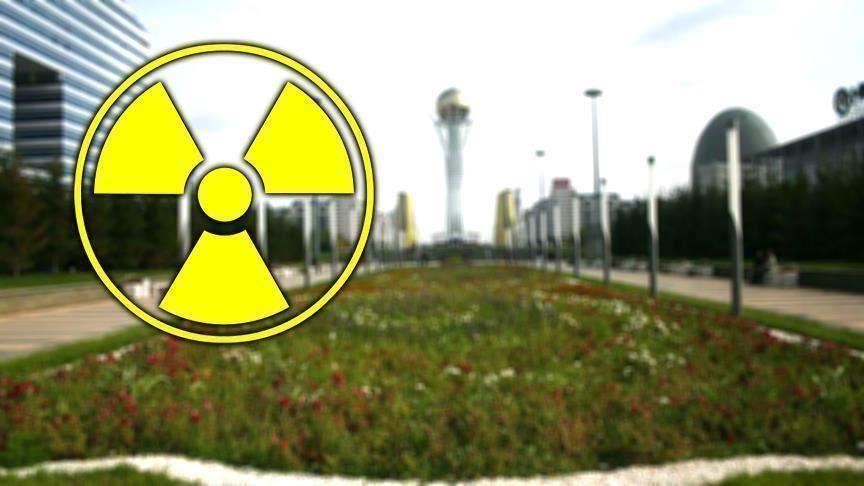Iranians not hopeful of breakthrough at Vienna summit
Diplomats from countries still party to 2015 nuclear deal with Iran to meet in Vienna Sunday

TEHRAN
Diplomats from countries still party to the 2015 nuclear deal with Iran are set to hold an emergency meeting in Vienna on Sunday to discuss ways of salvaging the agreement, a meeting that Iranians don't pin high hopes on to make a breakthrough.
The European Union said the remaining signatories – EU and E3 (UK, Germany and France) besides China and Russia will "examine issues linked to the implementation of the deal in all its aspects".
The EU said Sunday's meeting, to be chaired by EU foreign policy service's Secretary General Helga Schmid, was requested by France, Germany, the U.K. and Iran.
"We are not optimistic about the EU," Sayed Mohammad Marandi, an Iranian academic and political analyst who was part of the nuclear deal negotiations in 2015, told Anadolu Agency.
The 2015 nuclear deal suffered a body blow last year after the U.S. administration unilaterally withdrew from it and imposed fresh sanctions against Iran.
After a wait of one year, Tehran last month announced measures to scale back its commitments to the deal, citing lack of action from the EU/E3 to save the agreement.
The measures, including scaling up uranium enrichment beyond the stipulated limit under the accord, drew sharp reaction from many European leaders.
The Iranian government said the measures were reversible only through EU/E3’s compliance.
"So far, they [Europeans] have shown themselves to be too intimidated by Trump," Marandi said.
"Nevertheless, we are giving them an opportunity to change policy and commit themselves to implementing the nuclear deal."
Marandi opines that the decision taken by the Iranian government to scale back its commitments to the 2015 deal was warranted.
"The U.S. has torn the deal and the EU, despite verbal commitments, is in full violation," he said. "For the past 14 months, Iran has been the only side to abide by its commitments."
Public anger
Maysam Araee, Founder of Maynter Center for Strategic Studies, said the deal had clear political and economic objectives, which have diluted due to withdrawal of the U.S. and non-compliance of EU/E3.
"The measures taken by Iran now are not meant to push the EU/E3 to fulfill their commitments under the deal,” Araee told Anadolu Agency.
"It is basically meant to rebuild the government’s own reputation inside Iran,” he said, referring to the public anger in Iran due to harsh sanctions.
Although the public opinion in Iran is in favor of dialogue between Iran and the West, there is a huge trust deficit, which makes it difficult for Iranians to trust EU/E3.
And recent turn of events, especially Iran capturing a British-flagged tanker in the Strait of Hormuz for which it said "violated international maritime rules" has cast an ominous shadow over future negotiations.
Mohammad Ghaderi, chief editor of Iran’s leading international daily Tehran Times, believes that the action taken by Tehran was expected.
"In a deal, there are two or multiple parties, and compliance of just one party does not ensure survival of the deal,” he told Anadolu Agency.
Pessimism
All eyes are now focused on the Vienna meeting, which is seen as a last-ditch effort to salvage the deal at a time when tensions have flared in the Persian Gulf region.
Dr. Mani Mehrabi, international affairs analyst at United World International, said the upcoming meeting is a best chance for the European signatories to reaffirm their commitment to the nuclear deal.
"I believe Europe will blink to prevent Iran from further scaling up its uranium enrichment and Iran hopes EU/E3 will fulfill their commitments to salvage the deal,” he told Anadolu Agency.
However, some observers do not seem too hopeful about any major breakthrough.
"Europeans either cannot or will not take any meaningful action against U.S. sanctions (on Iran), like directly purchasing Iranian oil, because they fear Trump. If that happens, the status quo will continue,” Ali Ahmadi, a political commentator, told Anadolu Agency.
INSTEX, the new financial vehicle launched by Europe, will not have any major impact too, he noted.
"It will at most involve small food and pharmaceutical purchases that will not measurably benefit the Iranian economy or the lives of the Iranian people, so will not change the current political environment."
Hamid Reza Azizi, a professor at Shahid Beheshti University, agreed that there will not be any major breakthrough at Vienna.
“Iran has clear demands from Europe, at the top of which is the necessity for Iran to continue selling oil and getting back its revenues, which is yet to be agreed by the European side,” he told Anadolu Agency.
However, he hastened to add that the meeting could bolster mutual understanding between Iran and the EU on their mutual demands and the way ahead.
"Both sides have made it clear that they want to save the deal but I think more intensive diplomatic exchanges are needed to reach this common goal,” he said.








